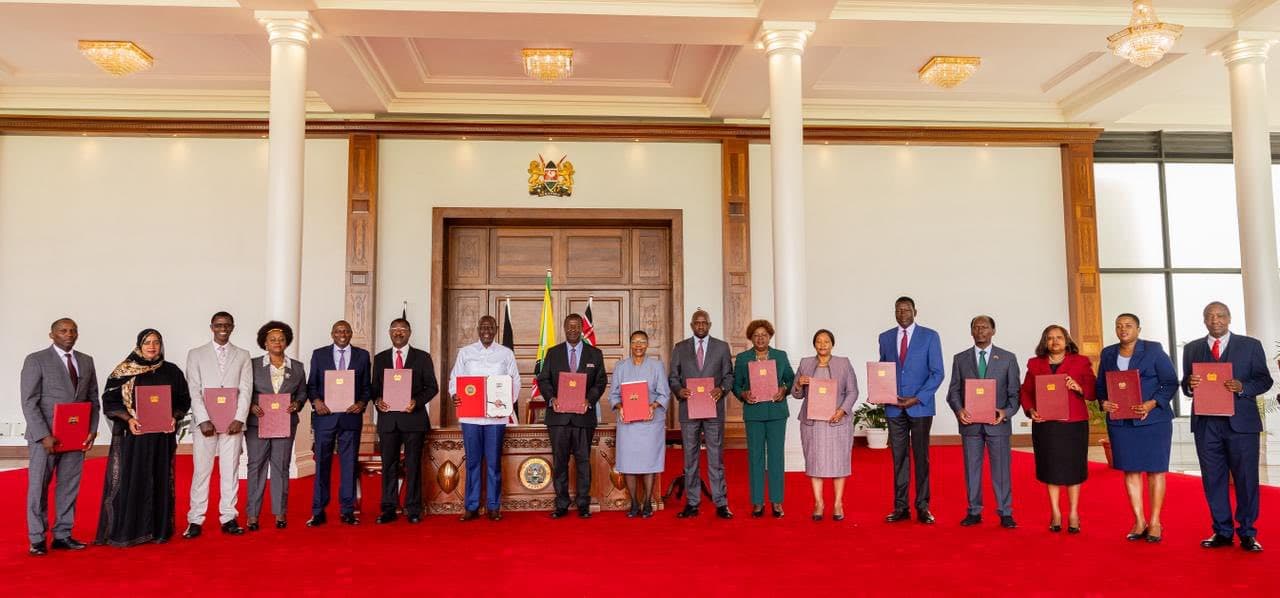We're loading the full news article for you. This includes the article content, images, author information, and related articles.
Recent legislative changes, including amendments to cybercrime and privatization laws, have ignited a national conversation about their potential impact on human rights, economic development, and democratic principles in Kenya.

Nairobi, Kenya – A series of new laws recently enacted in Kenya have drawn both praise for strengthening governance and criticism for potentially curtailing fundamental freedoms. The legislative package, signed into law by President William Ruto in October 2025, includes amendments to the Computer Misuse and Cybercrimes Act, the Privatisation Bill, and several other significant reforms touching on land management and environmental accountability.
While the government asserts these laws are crucial for national security, economic efficiency, and combating illicit activities, civil society organizations and legal experts have voiced concerns about their broad scope and potential for misuse.
Kenya's legislative landscape has been shaped by a continuous push for reforms, particularly since the promulgation of the 2010 Constitution, which introduced a robust Bill of Rights and emphasized public participation in governance. However, the relationship between the government and civil society has often been characterized by suspicion, with past attempts to introduce legislation perceived as restrictive. The current wave of reforms comes amidst ongoing efforts to address issues of corruption, land disputes, and economic development, which have historically posed significant challenges to the nation.
Among the most contentious is the Computer Misuse and Cybercrimes (Amendment) Act, 2024, which expands the definition of cybercrimes, introduces stricter penalties, and grants broader powers to state agencies. For instance, cyber harassment now carries a fine of up to KSh 20 million or a jail term of up to 10 years, or both. The law also empowers the National Computer and Cybercrimes Coordination Committee (NCCCC) to direct internet service providers to block access to content deemed illegal, even without a court order.
Another key piece of legislation is the Privatisation (Amendment) Bill, 2025, which aims to streamline the process of transferring public entities to private hands. This law seeks to enhance transparency, parliamentary oversight, and efficient use of proceeds from privatization, building on previous frameworks. Additionally, reforms have been enacted in environmental accountability, land governance, and climate finance, including amendments to the Wildlife Conservation and Management Bill, 2023, and the National Land Commission (Amendment) Bill, 2023.
The expanded government powers under the amended Computer Misuse and Cybercrimes Act have sparked considerable debate. Proponents, including government officials, argue that the measures are essential to combat rising cyber threats, online fraud, and the dissemination of harmful digital content. Interior Principal Secretary Dr. Raymond Omollo stated that the law is not intended to stifle free speech but to protect Kenyans from fraud, radicalization, and exploitation.
However, civil society organizations, legal experts, and media practitioners have expressed serious concerns. The Kenya Human Rights Commission (KHRC), along with activist Reuben Kigame, has filed a petition in the High Court challenging the law's constitutionality, arguing that certain provisions violate rights to privacy, freedom of expression, and access to information. Critics warn that the broad powers granted to the NCCCC could lead to censorship and be weaponized against activists and those who critique government policies.
The 2010 Constitution of Kenya guarantees a comprehensive Bill of Rights, including civil, political, economic, social, and cultural rights. Public participation in the legislative process is also enshrined in the Constitution, notably in Articles 10, 118, and 196. A 2024 World Bank report estimated that up to 30 percent of Kenya's rural land transactions remain informal, highlighting the need for land reforms. The Kenya Wildlife Service (KWS) estimates that Kenya loses approximately 2,000 wild animals annually to poaching, illegal trade, and habitat encroachment.
The stricter cybercrime laws, while aimed at enhancing national security, could potentially lead to a chilling effect on online speech and dissent, raising questions about the balance between security and civil liberties. For businesses, the increasing sophistication of cyber threats translates to higher costs for cybersecurity measures and potential reputational damage. In the land sector, unresolved disputes continue to hinder economic development and can lead to social instability. The Privatisation Bill, while aiming for efficiency, will require robust oversight to ensure public assets are not misused and that the process benefits all Kenyans.
The High Court's ruling on the petition challenging the Computer Misuse and Cybercrimes (Amendment) Act will be crucial in determining the extent to which the contested provisions are upheld or struck down. The effectiveness of the new Conflict of Interest Act, 2025, in combating rent-seeking and corruption will depend heavily on its enforcement, with some observers questioning whether its passage was primarily driven by external pressures, such as a reported $750 million World Bank loan. The full impact of the Virtual Assets Service Providers Bill 2025 on citizen investment in national infrastructure also remains to be seen.
The ongoing legal challenge to the Computer Misuse and Cybercrimes (Amendment) Act will set a significant precedent for digital rights and civil liberties in Kenya. The implementation and enforcement of the Conflict of Interest Act, 2025, will be closely watched as a measure of the government's commitment to combating corruption. Furthermore, the impact of the Virtual Assets Service Providers Bill 2025 on public participation in infrastructure projects and the broader digital economy will be a key area to monitor.
Keep the conversation in one place—threads here stay linked to the story and in the forums.
Sign in to start a discussion
Start a conversation about this story and keep it linked here.
Other hot threads
E-sports and Gaming Community in Kenya
Active 9 months ago
The Role of Technology in Modern Agriculture (AgriTech)
Active 9 months ago
Popular Recreational Activities Across Counties
Active 9 months ago
Investing in Youth Sports Development Programs
Active 9 months ago